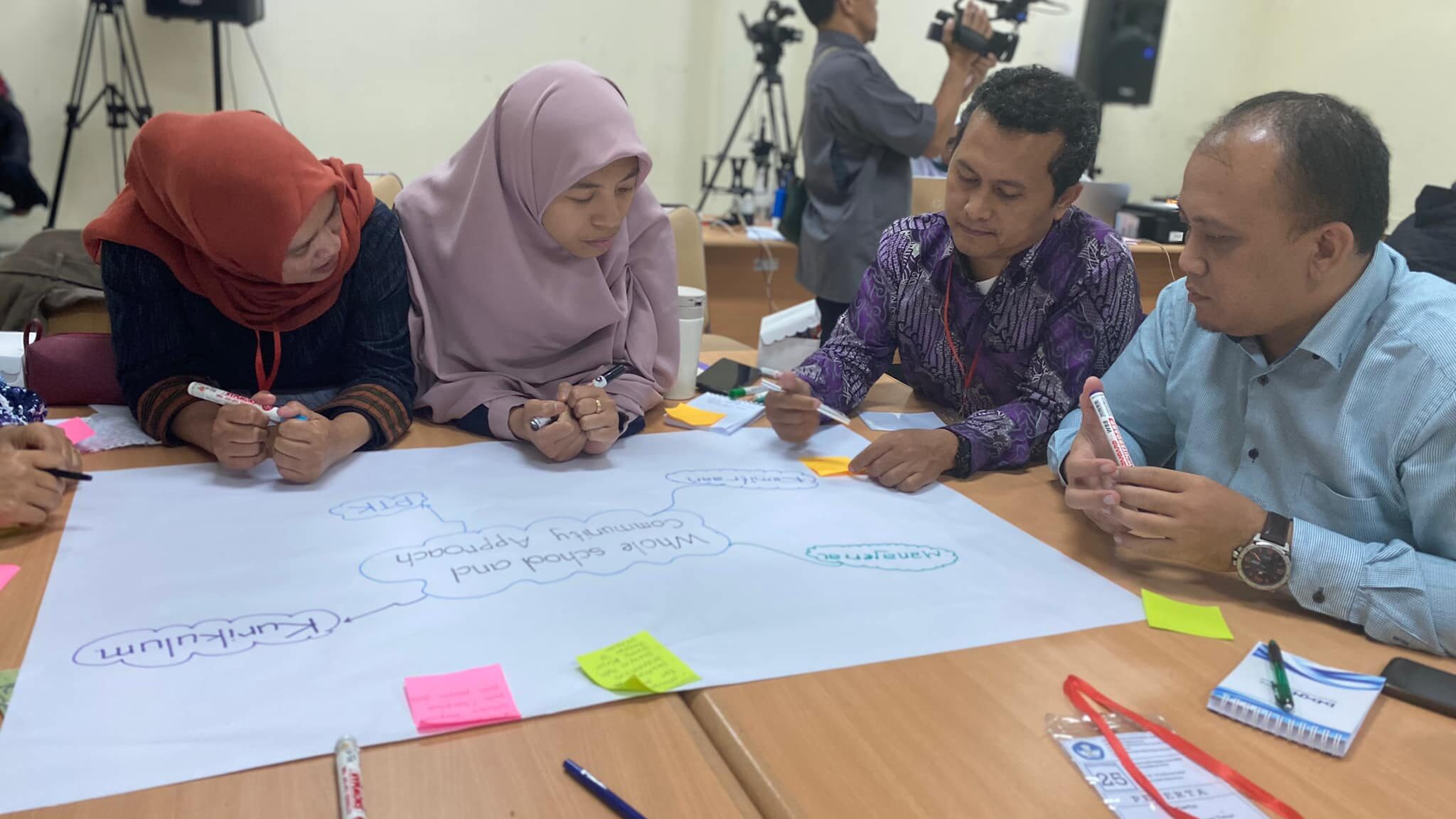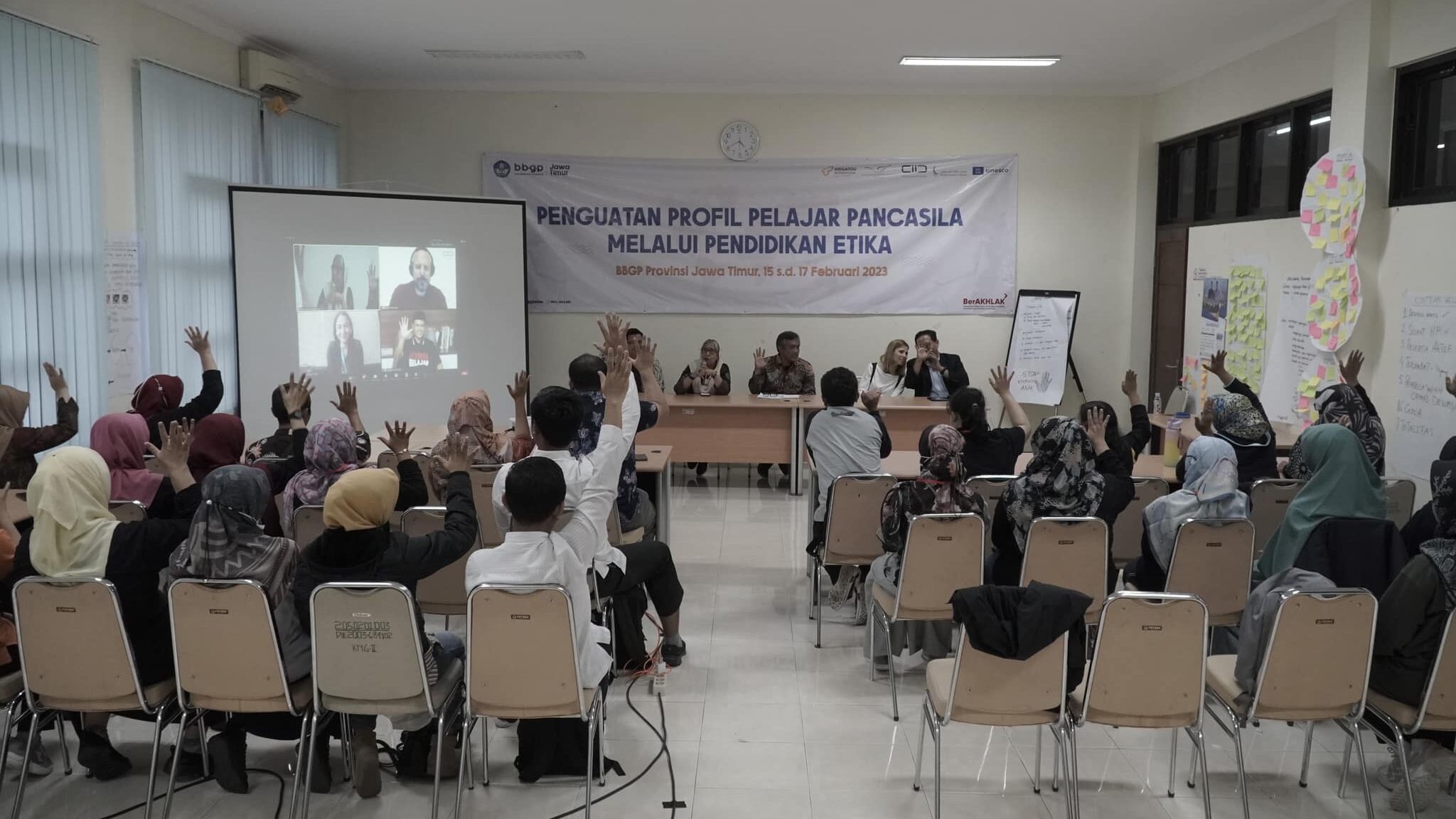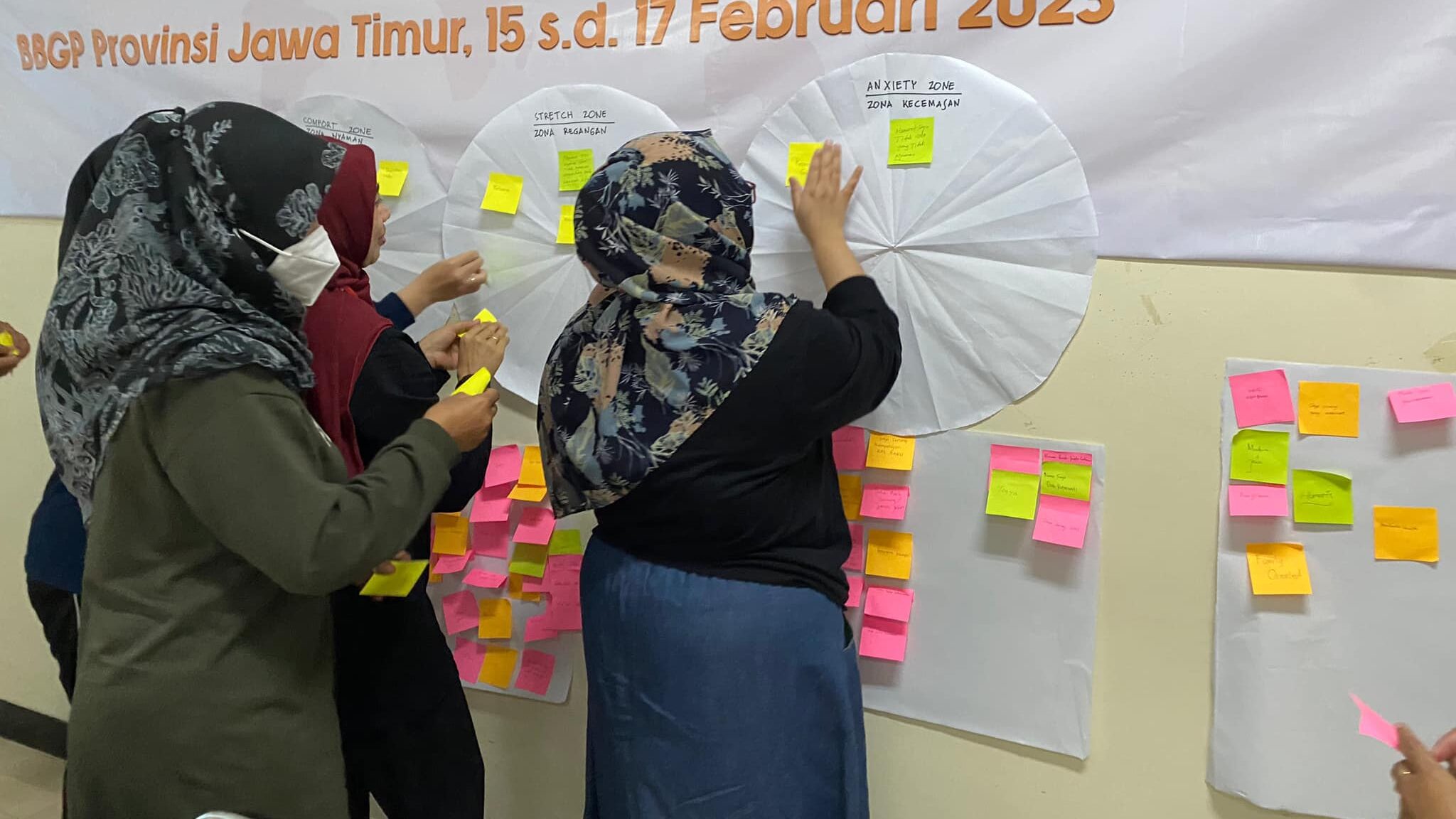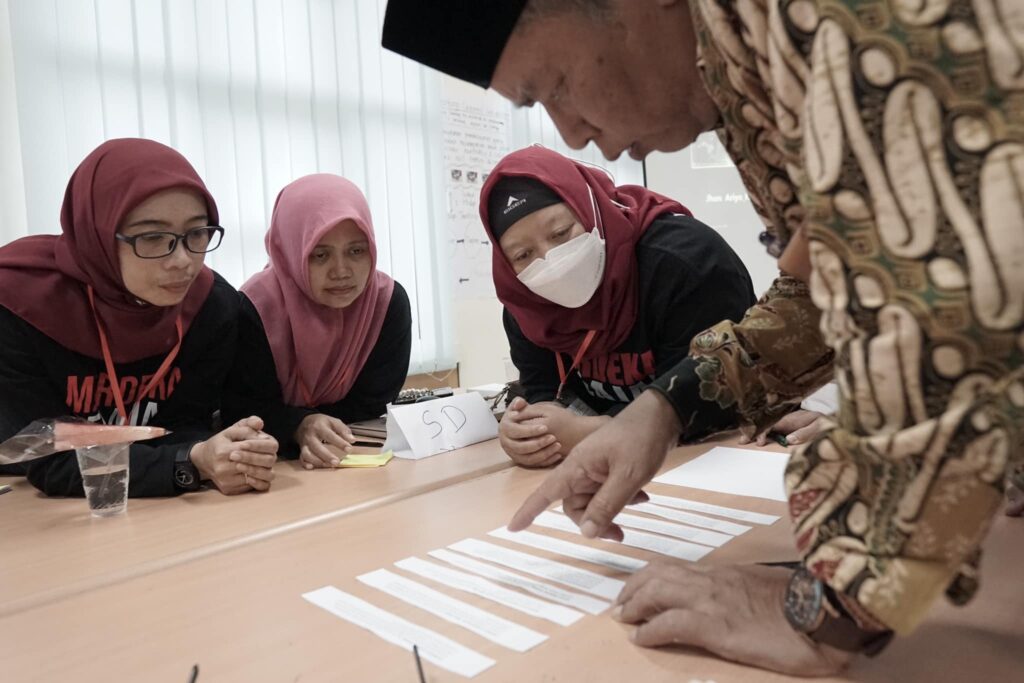
The training workshops for teachers under the Ethics Education Fellowship, concluded successfully in Indonesia, reaching 200 participants from five regions. The teachers received specialized training through engaging activities, equipping them with the necessary skills and knowledge to implement ethics education programs in their local schools. It is estimated that these teachers will reach 1,500 students by the end of 2023.
A Collaborative and Multistakeholder Journey
Designed to strengthen the sustainable delivery of ethics education programs for children, the Fellowship invites teachers to prepare and facilitate a learning journey for children. This approach helps learners to develop positive relationships with themselves and others, engage in ethical reflection and dialogue, enhance their ability to learn to live together and develop collective actions to make positive impacts in their communities.
The Ethics Education Fellowship is being carried out simultaneously and collaboratively in Bangladesh, Indonesia, Kenya, Mauritius, Nepal, and Seychelles. The program operates on a fellowship structure, where dedicated representatives from each country play a key role. These fellows lead the national efforts by organizing training workshops for teachers, ensuring the successful implementation of ethics education programs with children, and advocating for the importance of ethics education on a national scale. Furthermore, the fellows have established a Global Community of Practice to learn from each other, collaborate and support the expansion of the program.
This program is a collaborative effort involving Arigatou International, the Guerrand-Hermès Foundation for Peace, the KAICIID International Dialogue Centre, the Muslim Council of Elders, and UNESCO, which is represented by the UNESCO Regional Office for Eastern Africa and the UNESCO New Delhi Cluster Office. The process is supported by the National Commissions for UNESCO of Indonesia and Kenya. The program is being led in each country by the ministries of education, through the fellows, a group of educators and ministry officers, that were trained as teacher trainers back in October 2022.

Empowering Teachers through Training in Indonesia
The training program for Indonesian teachers consisted of two phases. The first phase, a hybrid workshop held in Suravaya in February 2023, brought together 67 participants from various regions. Over three days, participants had the opportunity to share their experiences, discuss critical issues affecting learners, and explore the role of education in addressing these challenges. Key topics included discrimination, stereotypes, violence, and their impact on children’s lives in schools.
Participants explored the Ethics Education Conceptual Framework which is built around three pillars: Relationships, Ethical Reflection and Dialogue, and Collective Action. They reflected on what ethics means in their lives and their interactions with others, and on the ethical challenges they, the children and their communities face. While doing it, participants identified how ethics education programs can foster transformation in children by encouraging ethical reflections and engaging them in dialogue with others.
“The workshop provided extraordinary benefits to me personally. Now I better understand how an educator should be a role model for students, especially in the classroom,” said one of the teachers, while highlighting the importance of learning to respect each other, and accept our differences.
Teachers explored the alignment between the transformative pedagogy approach and the Pancasila principles of the Indonesian Constitution. They also recognized the critical significance of interreligious and intercultural dialogue and its practical implementation in the classroom.
Dr. Itje Chodidjah, Executive Chair of the Indonesian National Commission for UNESCO, Ministry of Education, Culture, Research and Technology, Indonesia, emphasized the relevance of the Fellowship during her opening remarks at the workshop. She highlighted the program’s connection to the Pancasila ideology and expressed her commitment to supporting the Fellowship at the national level.

In May 2023, the second phase of the program took place with onsite workshops in five different regions: Sorong Regency, West Java, West Kalimantan, South Sukawesi, and East Java. These workshops focused on building teachers’ capacity to foster positive relationships and empower learners to create inclusive, respectful, and resilient societies. Teachers received guidance on implementing ethics education programs across various grade levels, from kindergarten to elementary, junior, and senior high school.
“For the Indonesian context, the workshop is very enriching because the experiences the teachers had is in line with their needs in the implementation of the Pancasila Students’ Profile Project. The workshop helped teachers understand more about ethics education, and more importantly, it enlightened them to make ethic education more visible and practical in their classroom,” shared Ms. Euis Lesmini Djuanda, School Principal and Fellow.
Looking Ahead
The trained teachers are now prepared to implement ethics education programs in their respective regions, positively influencing the lives of children in Indonesia. The Ethics Education Fellowship remains committed to its mission of nurturing global citizenship, building inclusive societies, and preparing students to tackle ethical challenges as active and responsible citizens.
Our gratitude goes to the fellows and all organizers who have supported the training program for teachers in Indonesia.
